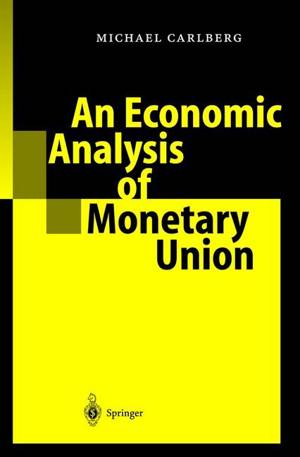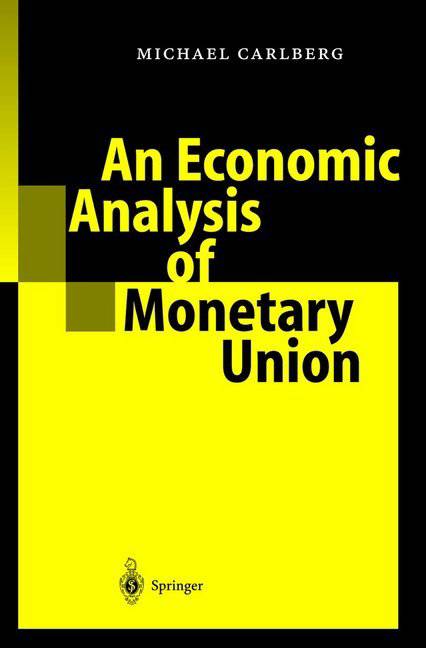
- Afhalen na 1 uur in een winkel met voorraad
- Gratis thuislevering in België vanaf € 30
- Ruim aanbod met 7 miljoen producten
- Afhalen na 1 uur in een winkel met voorraad
- Gratis thuislevering in België vanaf € 30
- Ruim aanbod met 7 miljoen producten
Zoeken
€ 105,45
+ 210 punten
Uitvoering
Omschrijving
This book explores the new economics of monetary UnIon. It carefully discusses the effects of shocks and policies on output and prices. Shocks and policies are country-specific or common. They occur on the demand or supply side. Countries can differ in behavioural functions. Wages can be fixed, flexible, or slow. In addition, fixed wages and flexible wages can coexist. Take for instance fixed wages in Germany and flexible wages in France. Or take fixed wages in Europe and flexible wages in America. A special feature of this book is the numerical estimation of shock and policy multipliers. Further topics are inflation and disinflation. Take for instance inflation in Germany and price stability in France. Then what policy is needed for disinflation in the union? And what will be the dynamic effects on Germany and France? The present book is part of a larger research project on monetary union, see Carlberg (1999, 2000). Over the years, in working on this project, I have benefited from comments by lain Begg, Christopher Bliss, Michael Cyrus, Johannes Hackmann, Bemd Hayo, Jay H. Levin, Jochen Michaelis, Franco Reither, Gerhard Rübel, Wolf Schäfer, Michael Schmid, and Artur Woll. In addition, Michael Bräuninger and Alkis Otto carefully discussed with me all parts of the manuscript. Last but not least, Doris Ehrich did the secretarial work as excellently as ever. I would like to thank all of them. March 2001 Michael Carlberg Executive Summary 1) The small monetary union as a whole. First consider monetary policy.
Specificaties
Betrokkenen
- Auteur(s):
- Uitgeverij:
Inhoud
- Aantal bladzijden:
- 256
- Taal:
- Engels
Eigenschappen
- Productcode (EAN):
- 9783540420453
- Verschijningsdatum:
- 22/05/2001
- Uitvoering:
- Hardcover
- Formaat:
- Genaaid
- Afmetingen:
- 156 mm x 234 mm
- Gewicht:
- 562 g

Alleen bij Standaard Boekhandel
+ 210 punten op je klantenkaart van Standaard Boekhandel
Beoordelingen
We publiceren alleen reviews die voldoen aan de voorwaarden voor reviews. Bekijk onze voorwaarden voor reviews.











